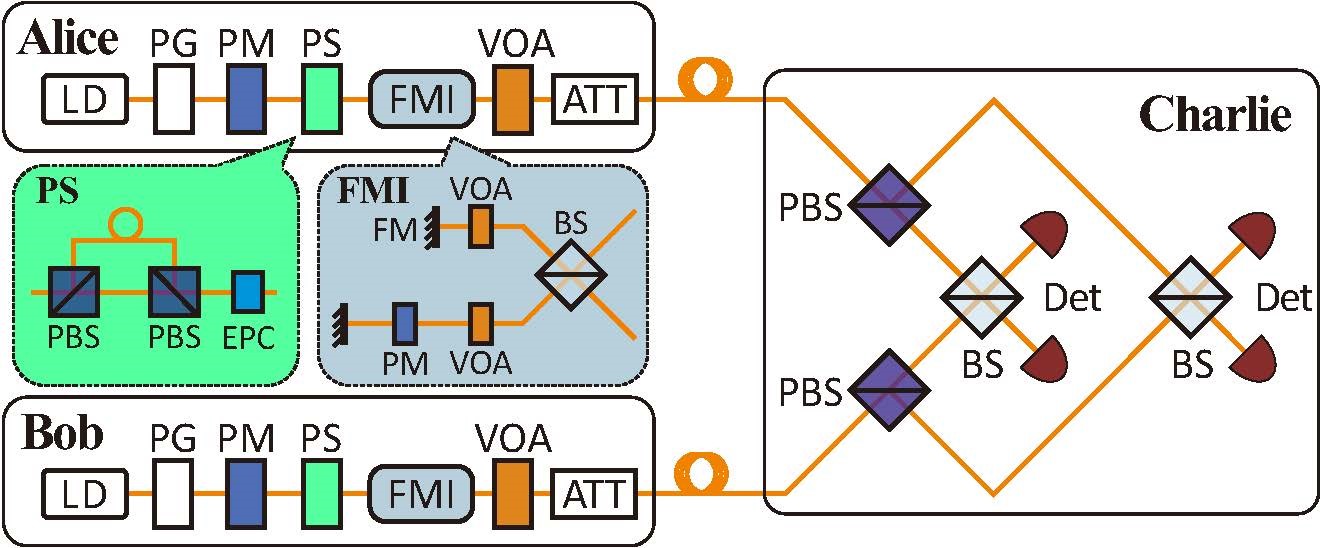Measurement-device-independent quantum key distribution (MDI QKD) is a promising protocol for secret communication because it provides an intrinsic immunity against all measurement attacks. However, the reference frames should be strictly aligned to ensure the effectiveness and robustness of the protocol. This requirement may introduce potential loopholes to the realistic devices, resulting in doubtful key-rate performance and may also heavily decrease the overall efficiency of the system, especially in network scenario and extreme channel conditions.
To solve this problem, Prof. HAN Zheng-Fu’s group has achieved a series progress in the practicability of MDI QKD. In 2015, the group accomplished the first phase-coding reference-frame-independent (RFI) MDI QKD that requires no phase alignment between remote parties [Phys. Rev. Lett. 115, 160502 (2015)]. In the latest work, researchers proposed and realized a robust RFI MDI QKD system which eliminates the primary reference frames of the MDI system, makes it capable of volatile field disturbances, and further improves the practicability of MDI QKD. This work was published on Optica entitled as “Measurement-device-independent quantum key distribution robust against environmental disturbances” on August 24th.

Schematic diagram of the robust MDI QKD scheme (Image by WANG Chao)
In field condition, the random birefringence evolution in optical fibers can be affected and accumulated by numerous ambient environmental disturbances, making the final output polarization state change rapidly. Thus the polarization calibration is a critical challenge in field MDI QKD networks, especially in complex channel conditions. Aiming at this issue, the group deployed polarization scrambling units as well as the separative detection structure, and achieved a MDI QKD system that is robust against environmental disturbances. The elimination of primary reference frames of the MDI system not only makes it capable of volatile field environments for practical use, but also prevents extra information leakage through these ancillary processes, reduces the resource consumption of the system, and greatly improves the efficiency of MDI networks in realistic channel conditions.
WANG Chao, a Ph.D. candidate of the School of Physical Sciences of USTC, is the first author. Associate Professor YIN Zhenqiang and Professor WANG Shuang are the corresponding authors of the paper. This work is supported by the National Key R&D Program of China, the National Natural Science Foundation of China, and the Strategic Priority Research Program (B) of the Chinese Academy of Sciences.
The link of the paper: https://www.osapublishing.org/abstract.cfm?uri=optica-4-9-1016
Contact
Associate Professor YIN Zhenqia
yinzq@ustc.edu.cn
Professor WANG Shuang
wshuang@ustc.edu.cn